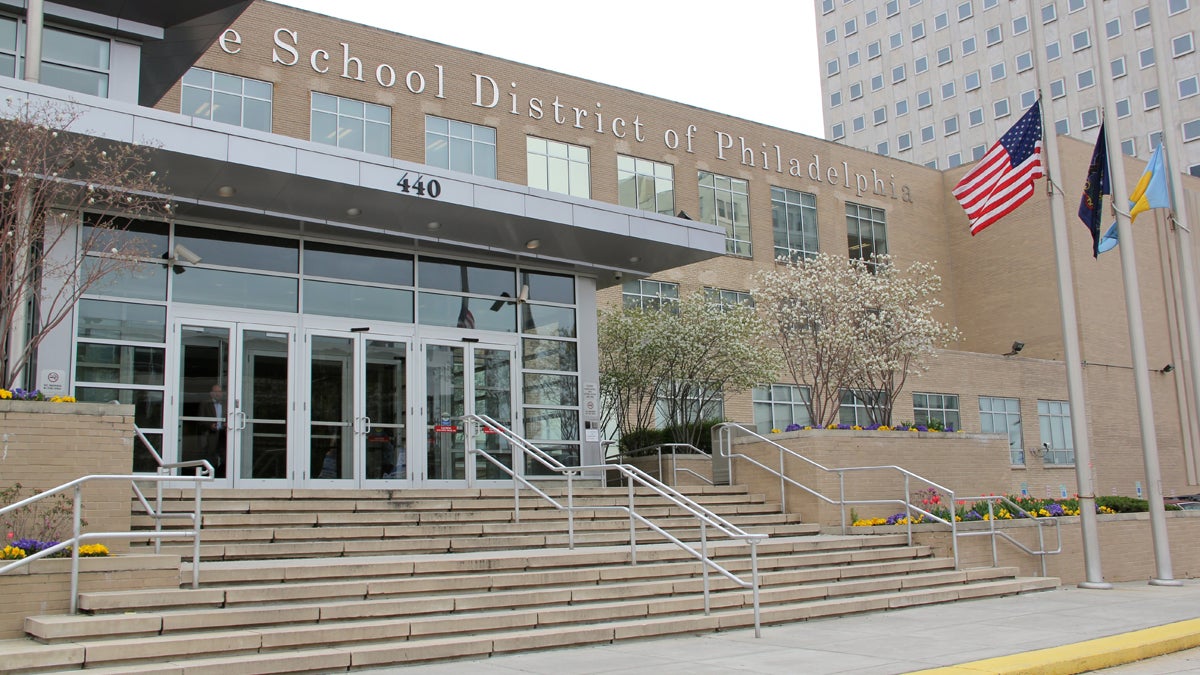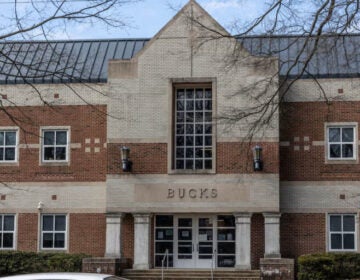Federal judge strikes down quick transfers of Philly students with autism

A United States Federal District Court Judge ruled that the Philadelphia School District can no longer transfer autistic students to new elementary or middle schools without giving parents an opportunity to understand and discuss the decision (Emma Lee/ NewsWorks Photo, file)
Parents of children with autism in the Philadelphia School District are celebrating a victory this week.
In a preliminary decision, United States Federal District Court Judge Legrome Davis ruled that the school district can no longer transfer autistic students to new elementary or middle schools without giving parents an opportunity to understand and discuss the decision.
Transfers are often necessary because not every school in the Philadelphia School District has classrooms and teachers designated to providing autistic support for every grade level. Some schools, for instance, may be able to serve kindergarten through third grade, but lack resources for grades four and five.
When this happens, the district’s “automatic autism transfer policy” shuffles students to another public school that can serve the students’ needs. The problem, though, according to a class-action lawsuit filed in 2011, is that the district has been acting with little to no input from parents, often at the last minute.
Parents and advocates say that this hurts autistic students who rely on structure and routine.
“One of my little clients thought he had been expelled,” said Sonja Kerr, special-education attorney with the Public Interest Law Center of Philadelphia. “A teacher sent home a note saying, ‘I just found out you’re not coming to school next year,’ and the little boy didn’t understand and cried for a week,” .
The law center, along with Dechert LLP filed the suit against the district on behalf of 1,600 students with autism. After three years of arguments and deliberations, district administrators have agreed to cooperate with the preliminary settlement ruling made this week. A follow-up hearing is scheduled for June 3.
“What this sets in place is a process to ensure that parents know more formally, as quickly as possible, that their child may be moved,” said Kerr.
According to the settlement, Philadelphia public schools will now have to inform parents by January if they think that a child needs to be moved that fall. The district must list the proposed school, if known, and inform parents of their rights to participate in a formal meeting with school officials to discuss the transition.
By June 1st of each year, the district must make the transfer official and inform parents of their right to request a due process hearing if they think a certain placement is inappropriate for their child.
Teachers and school officials also must receive formal acknowledgement of transfers.
The district also must publish a listing of autism support classrooms on its website by mid-October of each year. This list does not currently exist publicly.
“We think this is a very important case, not just for Philadelphia,” said Kerr, “but for all children with autism because it is a recognition of the very, very serious nature of their condition, and how their condition is very, very linked to difficulty with change.”
As parents of children with autism will tell you, predictability and structure are essential to their academic success. Autistic students often feel disoriented by stark changes to things like school environment, classroom color, and school uniforms.
Cathy Rocca-Meier is mom to a Philly 11th grader with autism. For a decade she has been pushing for special-education policy reforms she sees the ruling as vindication. As the former chairperson of the special-education-law-mandated Philadelphia Right to Education Taskforce, Rocca-Meier led the charge for the lawsuit.
“In the past, [parents and students] weren’t informed until the first day of school,” she said. “They often found out from the bus drivers.”
Although she understands the logistical challenges, Roccia-Meier hopes the district takes steps to curtail autism-based transfers altogether. She calls this decision “a great step going foreward.”
The Philadelphia school district could not be reached for comment on the settlement decision.
The Public Interest Law Center encourages parents to attend the June 3rd fairness hearing, scheduled for 9:30 a.m. in Courtroom 6A at the U.S. District Courthouse at 601 Market Street in Philadelphia.
WHYY is your source for fact-based, in-depth journalism and information. As a nonprofit organization, we rely on financial support from readers like you. Please give today.





